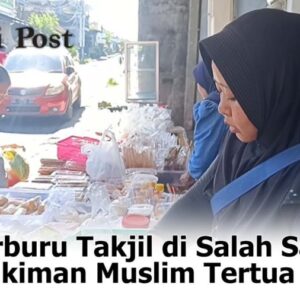Kupang –
The Kupang City General Election Commission (KPU) held a recapitulation of the votes for the 2024 East Nusa Tenggara (NTT) Governor Election (Pilgub). Candidate pair (paslon) number 3 Simon Petrus Kamlasi and Adrianus Garu won in Kupang City.
Simon Kamlasi and Adrianus Garu received 84,716 votes. Meanwhile, candidate pair number 2 Melki Laka Lena-Jhoni Asadoma won 68,863 votes, followed by candidate pair number 1 Ansy Lema-Jane Natalia Suryanto with 36,567 votes.
“From the plenary recapitulation of the six sub-districts in Kupang City, candidate number 3 was the winner,” said the Chairman of the Kupang City KPU, Ismail Manoe, to media crew in Kupang, Friday (6/12/2024).
ADVERTISEMENT
SCROLL TO CONTINUE WITH CONTENT
He explained that the final voter list (DPT) in Kupang City was 275,085 voters. However, according to the NTT gubernatorial election ballot paper, only 193,480 votes were used. Meanwhile, for the Kupang Pilwalkot ballot paper, there were 192,751 votes. There were 189,170 valid votes recorded and 3,581 invalid votes.
“For the ballot papers for governor and deputy governor voters, there were 190,146 valid votes, while there were 3,334 invalid votes. So the total votes used were 193,480 votes from the 276,085 DPT of Kupang City,” he explained.
Voter Participation Falls
The chairman of the Kupang City Bawaslu, Yunior Adi Nange, admitted that public participation in voting had decreased compared to the 2024 election. Based on Bawaslu’s calculations, community participation in the exercise of voting rights had almost reached 70 percent.
“If our count at Bawaslu was from 68 percent, now it has almost reached 70 percent but it’s not significant. I forgot the exact figure,” said Adi on the sidelines of the plenary recapitulation of votes obtained at the Kupang City level.
Adi explained that increasing the level of voter participation is a shared responsibility. Although Bawaslu and the KPU have held social activities related to the 2024 regional elections.
This is an important note for election organizers in the future on how to increase the active participation of the public in voting again.
“So our note is that the socialization of political education for the community must continue to be carried out,” explained Adi.
(nor/nor)






